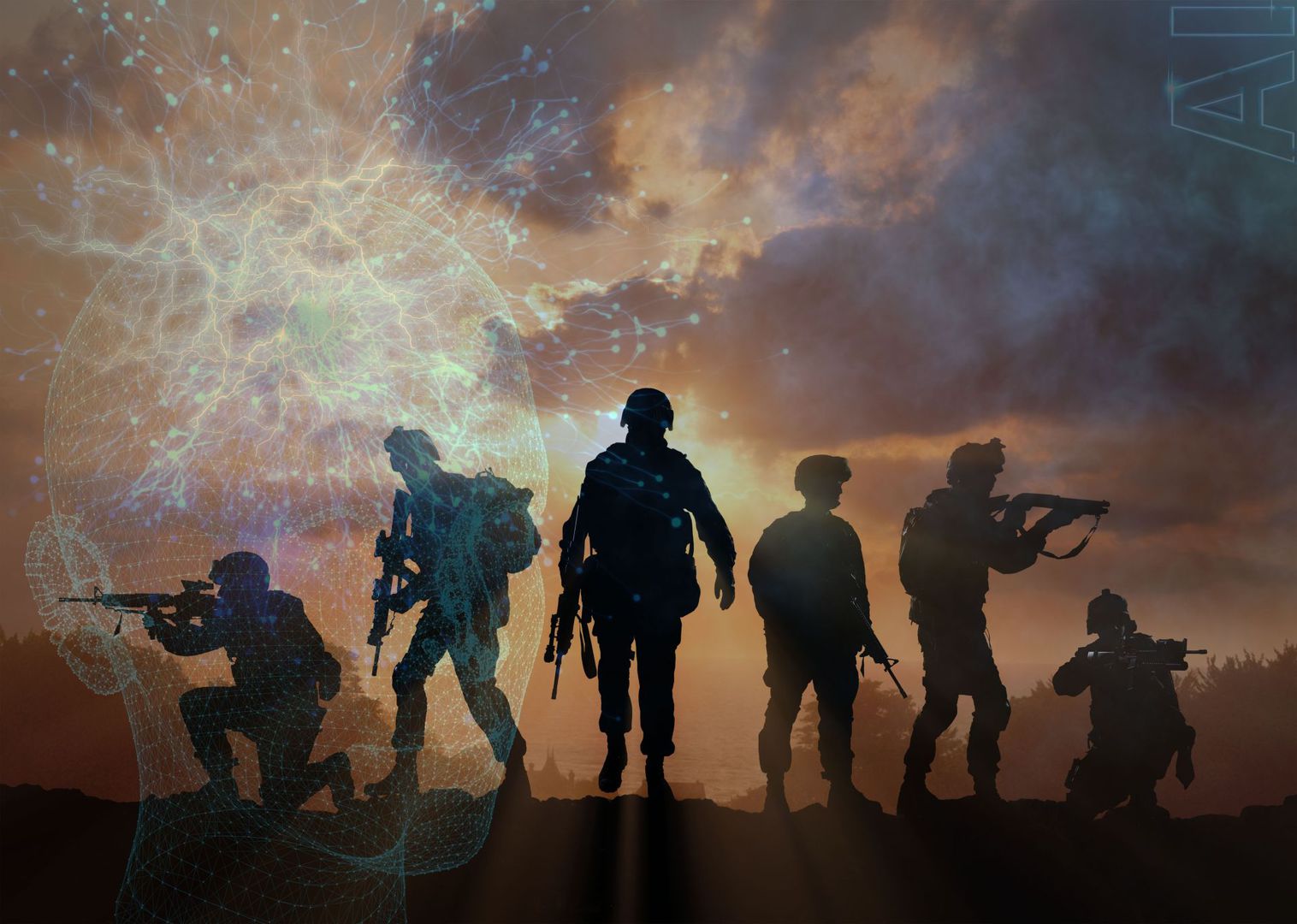
One aspect of the return of great power competition is the race to develop artificial intelligence, Defense Secretary Dr. Mark T. Esper said at the virtual Joint Artificial Intelligence Center symposium.
Artificial intelligence has the potential to change the battlefield, and the country that’s first to field it will have enormous advantages over competitors, he told participants today.
“History informs us that those who are first to harness once-in-a-generation technologies often have a decisive advantage on the battlefield for years to come,” the secretary said. “I experienced this firsthand during Operation Desert Storm, when the United States’ military’s smart bombs, stealth aircraft and satellite-enabled GPS helped decimate Iraqi forces and their Soviet equipment.”
Artificial intelligence has the potential to be even more far-reaching than those technologies. “Unlike advanced munitions or next-generation platforms, artificial intelligence is in a league of its own, with the potential to transform nearly every aspect of the battlefield, from the back office to the front lines,” he said. “That is why we cannot afford to cede the high ground to revisionist powers intent on bending, breaking or reshaping international rules and norms in their favor — to the collective detriment of others.”
Esper noted that Russian President Vladimir Putin said the nation that leads in AI will be the “ruler of the world,” and Russia has increased investments in the technology. “His intent is to employ any possible advantage to expand Russia’s influence and chip away at the sovereignty of others,” Esper said.
The Russians used a sophisticated and well-coordinated combination of unmanned aerial vehicles, cyberattacks, and artillery barrages to inflict severe damage on Ukrainian forces when they invaded that country. “Since then, Moscow has announced the development of AI-enabled autonomous systems across ground vehicles, aircraft, nuclear submarines and command and control,” he said. “We expect them to deploy these capabilities in future combat zones.”
The Chinese Communist Party has a goal of being the AI world leader in 10 years. The People’s Liberation Army sees AI as a leap-frog technology that will allow the largest military on Earth to field low-cost, long-range autonomous vehicles and systems to counter America’s conventional power projection. “At this moment, Chinese weapons manufacturers are selling autonomous drones they claim can conduct lethal, targeted strikes,” the secretary said. “Meanwhile, the Chinese government is advancing the development of next-generation stealth UAVs [unmanned aerial vehicle], which they are preparing to export internationally.”
“Beijing is constructing a 21st-century surveillance state designed to wield unprecedented control over its own people,” Esper said. “With hundreds of millions of cameras strategically located across the country and billions of data points generated by the Chinese Internet of Things, the CCP will soon be able to identify almost anyone entering a public space, and censor dissent in real time.”
The Chinese system can be used to invade private lives, leaving no text message, internet search, purchase or personal activity free from Beijing’s ever tightening grip, the secretary said. “As we speak, the PRC is deploying — and honing — its AI surveillance apparatus to support the targeted repression of its Muslim Uighur population,” he said. “Likewise, pro-democracy protesters in Hong Kong are being identified, seized, imprisoned or worse by the CCP’s digital police state — unencumbered by privacy laws or ethical governing principles. As China scales this technology, we fully expect it to sell these capabilities abroad, enabling other autocratic governments to move toward a new era of digital authoritarianism.”
The U.S. is pioneering a vision for the emerging technology that protects the U.S. Constitution and the rights of all Americans. U.S. officials would like to see allies and partners adopt the standards of individual liberty, democracy, human rights and respect for the rule of law.
“We approach AI as we have other high-tech breakthroughs throughout our department’s history — with rigorous standards for testing and fielding capabilities and the highest ethical expectations,” Esper said. “Technology may constantly change, but our commitment to our core values does not.”
Earlier this year, DOD adopted ethical principles for the use of AI-based on core values, such as transparency, reliability and governability. “These principles make clear to the American people — and the world — that the United States will once again lead the way in the responsible development and application of emerging technologies, reinforcing our role as the global security partner of choice,” he said.
Esper touted the work of the Joint Artificial Intelligence Center saying its more than 200 civil service and military professionals work diligently to accelerate AI solutions and deliver these capabilities to the warfighter.
The JAIC helps the joint force organize, fight and win at machine speed. For example, AI helps in enhancing wildfire and flood responses through computer vision technology. “The JAIC is utilizing every aspect of artificial intelligence as a transformative instrument at home and abroad,” he said. “The JAIC is also lowering technical barriers to AI adoption by building a cloud-based platform to allow DOD components to test, validate and field capabilities with greater speed, at greater scale. The goal is to make AI tools and data accessible across the force, which will help synchronize projects and reduce redundancy, among many other benefits.”
from Defense News by DefenceTalk.com https://ift.tt/3mmZnjg
via Defense News
No comments: